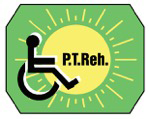


|
Current issue
Archive
Manuscripts accepted
About the journal
Editorial board
Reviewers
Abstracting and indexing
Contact
Instructions for authors
Publication charge
Ethical standards and procedures
Editorial System
Submit your Manuscript
|
2/2018
vol. 32 abstract:
Original paper
An assessment of the relationship between the level of physical activity and the risk of falls and depression in elderly adults aged 60 - 75 years from the Podkarpackie region.
Natalia Wołoszyn
,
Agnieszka Wiśniowska-Szurlej
,
Bernard Sozański
Advances in Rehabilitation/Postępy Rehabilitacji (2), 41 – 48, 2018
Online publish date: 2018/08/30
View
full text
Get citation
ENW EndNote
BIB JabRef, Mendeley
RIS Papers, Reference Manager, RefWorks, Zotero
AMA
APA
Chicago
Harvard
MLA
Vancouver
Introduction
Almost all societies of the world are ageing. One of the most common problems of the elderly are falls and mobility disorders. They may result in disability and in loss of functional independence. We conducted the study to assess the relationship between the level of physical activity and the risk of falls and depression in adults aged 60-75 years. Materials and Methods We used the random route method and included 500 subjects from southeast Poland. We measured physical activity with the International Physical Activity Questionnaire (IPAQ), and we assessed the risk of falls with the Tinetti test. To assess depressive states, we used the Geriatric Depression Scale (GDS-15). We used a questionnaire to obtain sociodemographic and anthropometric data. Results The mean weekly energy expense (metabolic equivalent of task - MET) of the studied population measured with the IPAQ was 823.88 MET min/week. We found a statistically significant relationship between the level of physical activity and the risk of falls and depression in the studied population. Subjects with insufficient physical activity had statistically higher risk of falls (p=0.0373), and had depression statistically more often (p=0.0003). Conclusion Subsequent studies should aim at establishing an optimal training programme for the elderly. It is important for subjects over 60 years of age to know that physical activity is crucial for maintaining good health and functional ability, as well as for subjective wellbeing. keywords:
aged, physical performance, depressive disorder, falls risk |
    |